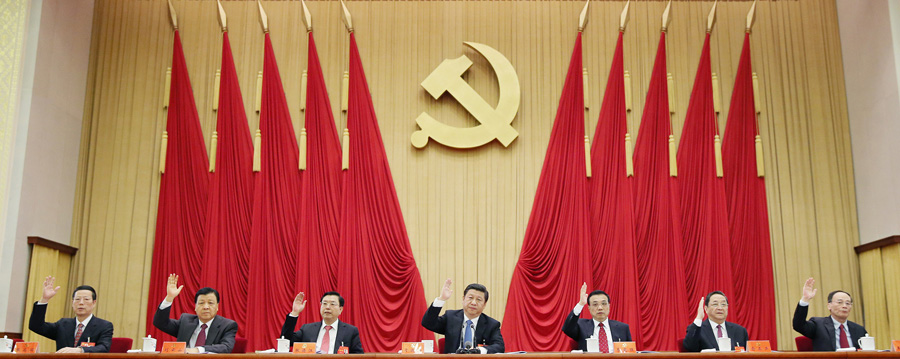
(TibetanReview.net, Oct21, 2014) – The Fourth Plenum of the 18th Central Committee of the Communist Party of China opened in Beijing on Oct 20 with the key theme of discussion “rule of law”, reported China’s official Xinhua news agency Oct 20. A Reuters commentary posted on China’s official Chinadaily.com.cn Oct 20 said the proposed reform will try to limit the influence local party and government officials have on court cases.
The Reuters report said Chinese private companies and foreign investors had long complained that it was difficult to get a fair hearing in court because judges usually answered to local governments and Party agencies, which often had their own interests to protect. Given China’s slowing economic growth in recent times, the proposed reform is timely.
“Protecting intellectual property and contracts are the preconditions for economic development and growth,” wrote Li Shuguang, China University of Political Science and Law Professor in the party mouthpiece People’s Daily Oct 15, adding that the current system was “not working properly” because it gave too much opportunity for officials to abuse their power. “For healthy future economic growth, the rule of law will play an even more important role in China’s market economy,” Li has added.
It remains to be seen, however, whether the plenum will come out with any real reform and if so whether this will also make a difference in the way Chinese courts deal with people alleged to endanger the security or unity of state or social stability.
The Chinese version of rule of law has sometimes been described as rule by law, meaning the use of law by the Communist Party to control and regulate society, without any reference to the quality of the law or procedural fairness in its implementation.
Nevertheless, it remains to be seen what real reform the plenum will come out with on Oct 23. The first major limit to reform will be China’s one-party authoritarian system which cannot co-exist with judicial independence. “All bets are off whenever the party sees a threat to its continued power; steps toward the rule of law don’t mean steps toward multiparty political democracy, which China’s current leaders totally resist. When the plenum issues its report, it will surely underscore that one central role of law is to maintain social order,” noted a nytimes.com commentary Oct 19.
Still, a Xinhua commentary Oct 19 cited experts as noting this will be the first time for a CPC session to center on the rule of law, “which will be the key to realizing the party’s goal to promote the modernization of China’s governing system and capabilities.”
The commentary cited Dr Mei Gechlik, director of China Guiding Cases Project at Stanford Law School, as pointing out that China’s leaders had pledged to achieve a set of goals by 2020, including ensuring “independence and fairness in courts” and letting “the judicial system be more transparent.” The question is how independent, how fair and how transparent especially in cases involving critics of the government, or those who campaign for democracy, end to corruption, and for rights of ethnic minorities.
Despite these, however, China does have a real reason to want to introduce rule of law to a limited extent. As noted by the nytimes.com commentary: “China’s leaders see improving the legal system not simply as a way to control society but as a way to rein in wayward bureaucrats, insist that local officials carry out national policies, establish rules of the road for a more robust economy, provide peaceful ways for citizens to resolve disputes and seek redress for grievances, reduce the corruption that’s seen as the greatest threat to the Party’s continued hold on power — in short, to constrain government itself, not just to control society and contain social unrest.”
In this connection, the commentary pointed out that while President Xi Jinping may have been playing to the crowds when he recently spoke of “locking power in a cage,” it was also a recognition that the party needs to constrain some of its power in order to keep it.


